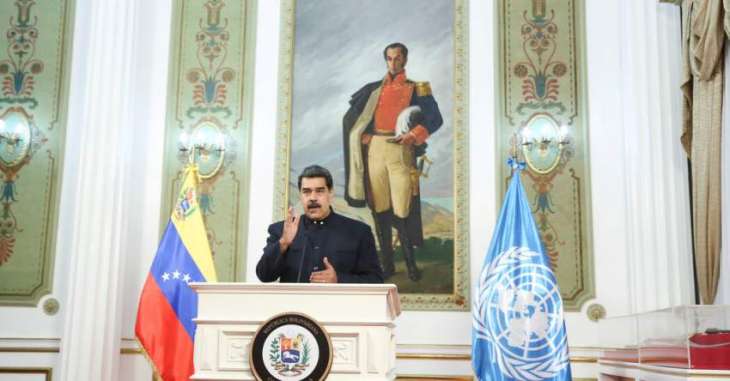The UK Court of Appeals' decision to revoke a previous court ruling on the legal case over the control of the Venezuelan gold reserves held in the Bank of England means the High Court will need to clarify whether the UK government recognizes opposition figure Juan Guaido or constitutional President Nicolas Maduro as the head of state and government of Venezuela, lawyer Leigh Crestohl told Sputnik on Tuesday
LONDON (Pakistan Point News / Sputnik - 06th October, 2020) The UK Court of Appeals' decision to revoke a previous court ruling on the legal case over the control of the Venezuelan gold reserves held in the Bank of England means the High Court will need to clarify whether the UK government recognizes opposition figure Juan Guaido or constitutional President Nicolas Maduro as the head of state and government of Venezuela, lawyer Leigh Crestohl told Sputnik on Tuesday.
"The court would try to give some meaning to a rather strangely worded, quite ambiguous statement from the Foreign Office in February 2019 by then Foreign Secretary Jeremy Hunt," Crestohl, who works for Zaiwalla & Co., the legal firm representing the Venezuelan Central Bank (BCV) said in a phone interview.
The legal battle for the gold began after Guaido declared himself interim president in the wake of public protests in Venezuela back in January 2019.
Afterward, the Bank of England refused to fulfill a request made by the BCV to have access to the gold bullion, valued at an estimated $1.2 billion, to buy medicine and equipment to tackle the COVID-19 pandemic, claiming that there was a lack of clarity as to who was the president of Venezuela.
After the BCV took the Bank of England to trial, the England Commercial Court ruled in July against the board appointed by Maduro, as the judge presiding over the case then said that since Guaido had been "unequivocally" recognized by the UK as the interim president of Venezuela in Hunt's statement, Guaido's ad hoc administrative board had a right over the gold.
According to Crestohl, the UK Foreign Office never answered directly to the High Court's "important question of who the UK government recognizes as head of state and head of government of Venezuela."
"Because of that situation, judge Nigel Teare had to do the best that he could do, but unfortunately, he didn't do the job correctly and the Court of Appeals has now sorted things out and sent the case back," he added.
The lawyer explained that the purpose of the appeal was never to reverse the High Court's decision that Guaido had been recognized as the "de jure" president of Venezuela by the UK government, but to establish the fact that Maduro is the de facto president of the country.
"Because if Mr. Maduro is the de facto president, then the acts of the de jure president, Mr. Guaido, would be considered a nullity here," he said.
Crestolh also questioned the Bank of England's alleged neutrality in this case, stating that when the bank refused to give the gold to the Maduro-appointed BCV board, such decision was made in part on the basis of the UK government's political statement.
"So, it is in part a political position, but in a legal sense, the Bank of England would say it was merely acting cautiously because it had been put on notice of the dispute," he said.
The lawyer added that although Guaido's legal team can challenge the Court of Appeals' ruling, there is no automatic right to go to the Supreme Court.
"Our wish would be that any proceedings in the Supreme Court would stay pending to the further work the Commercial Court needs to do, so that that the timetable would not be interrupted by an appeal," Crestolh explained.
According to the lawyer, the funds from the sale of the gold reserves "are very much needed" in Venezuela to fight the COVID-19 pandemic, so Guaido should assess the political consequences of further delaying the case by going to the Supreme Court.




